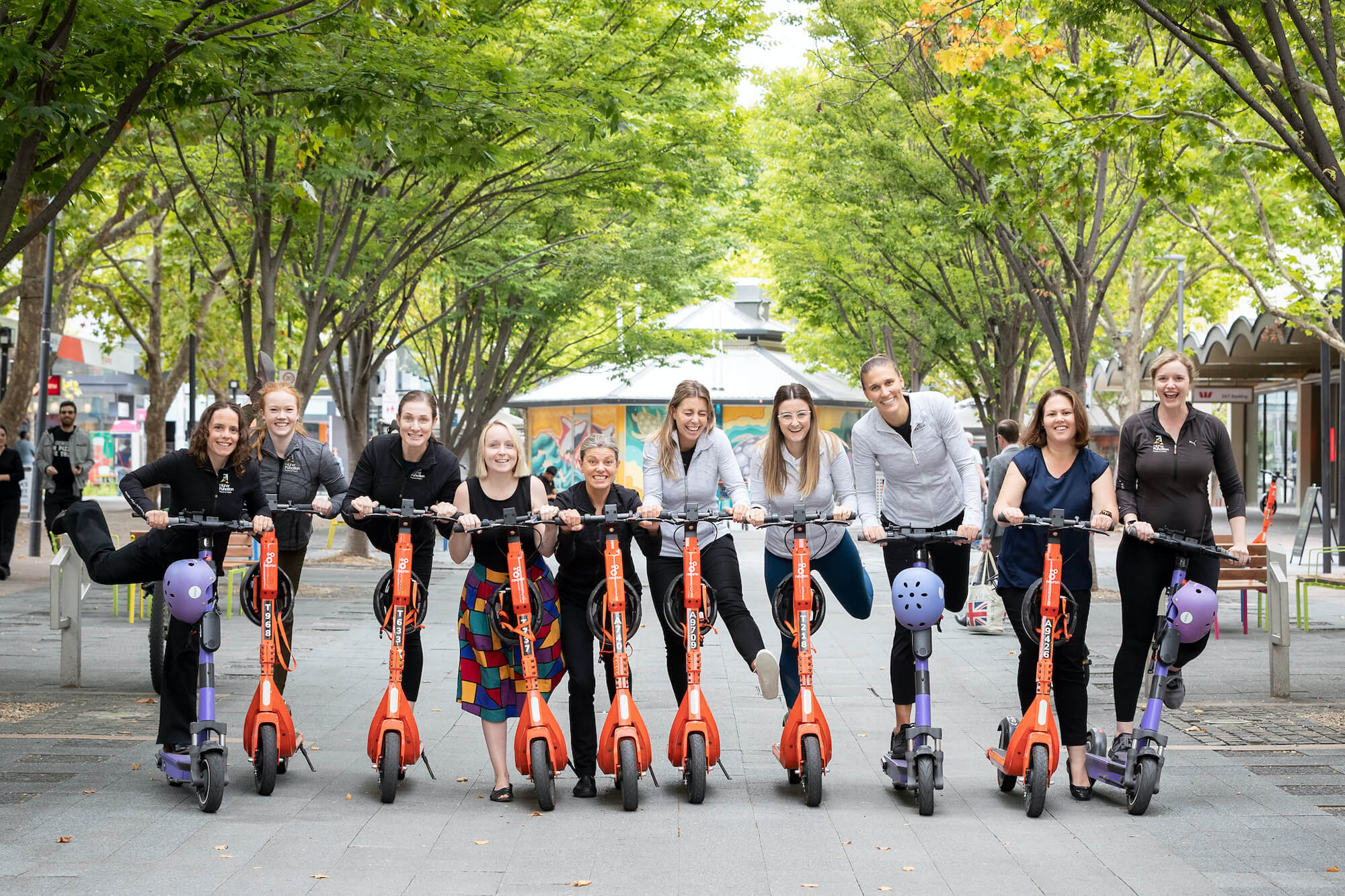Georgia Ferguson – Exercise Physiologist
Ensuring a safe return to activity post-partum is incredibly important. Accredited Exercise Physiologist, Georgia Ferguson, explains why.
If you are reading this, then congratulations are most likely in order! Congrats on your new baby! Whilst a lot of new mums are excited to return to the gym, running and ready to get their ‘pre-baby-body’ back, it’s important to seek the right advice and slow things down just a little…
It’s important to remind yourself that your body has just undergone a massive change – it’s grown a baby for 9 months! While pregnant, your body has experienced massive physiological changes to your heart, lungs, hormones, muscles, and your pelvic floor. And now that your baby is Earth-side, your body continues to change as it recovers from your pregnancy for up to 12 months after birth. An Exercise Physiologist can safely guide you through your return to exercise, which will assist with healing and recovery of the uterine, abdominal, and pelvic muscles, whilst also getting back your general muscle strength and tone!
After you have given birth, allow yourself a few weeks to recover and adjust to life with your new baby. From approximately 6 weeks post-partum you can book your Post-Partum Assessment with an Exercise Physiologist (sometimes sooner if you have any concerns or are extra keen!). It is also important to ensure that you have been cleared by your Obstetrician and GP prior to commencing exercise. Some women may also require an internal examination with a Women’s Health Physio for a pelvic floor or prolapse assessment or early management for perineal tear and episiotomy (we can recommend Origin Physio or Her Physio for this!).
What to expect at your post-partum assessment with an Exercise Physiologist?
You can expect your Exercise Physiologist to ask you various questions and perform different assessments such as:
- Asking about your birth experience and how you feel your recovery is going so far.
- Discuss any new and/or pre-existing muscle and/or joint aches and pains.
- Pelvic floor prescreening questions to ensure safe return to exercise (Our therapists at Higher Function do not perform internal pelvic floor examinations).
- Education about pelvic floor health and why it is important for you.
- Discuss your exercise goals and your ideal timelines to achieve these.
- Abdominal separation (Diastasis Recti – “DRAM”) assessment.
- Pelvic stability and strength assessments, particularly for those mammas who want to return to running; and
- Education about correct core and breathing techniques as well as identifying what level of strength you are currently at.
Within these appointments, you will be given an individualised exercise program to help assist with your recovery outside of appointments and/or Mums and Bubs classes where appropriate. As seen in the image below, woman can present very differently with their abdominal separation type and level and thus, individualised programs with specific evidence-based exercises lead to improved recoveries.

We believe that exercise is medicine, and we can’t wait to help you safely return to whatever exercise makes you happy and feel great. Exercise has been shown to not only benefit you physically, but to also improve energy levels (I’m sure many of you would like this!), improve your sense of overall well-being and reduce your risk of post-partum depression.
Here are some general ideas to help return to activity as a new mum:
- Walking </=30mins to start with (with a pram or a baby carrier if you can)
- ‘Mums and Bubs’ Clinical Exercise classes and/or Yoga
- Swimming (once all surgery incisions and wounds have healed – check with your GP)
- Having a tailored exercise program designed by an Accredited Exercise Physiologist – especially if you are concerned or have been diagnosed with abdominal separation and/or pelvic floor weakness or prolapse.
We offer Mums & Bubs classes every Wednesdays 10:30am- 11:30am, with more classes to come soon! All new patients must have a Clinical Exercise Assessment with a Physio for Exercise Physiologist prior to starting classes. Initial assessment and classes are claimable from most Private Health Insurers. Book your initial assessment with Accredited Exercise Physiologist Georgia here!
References


